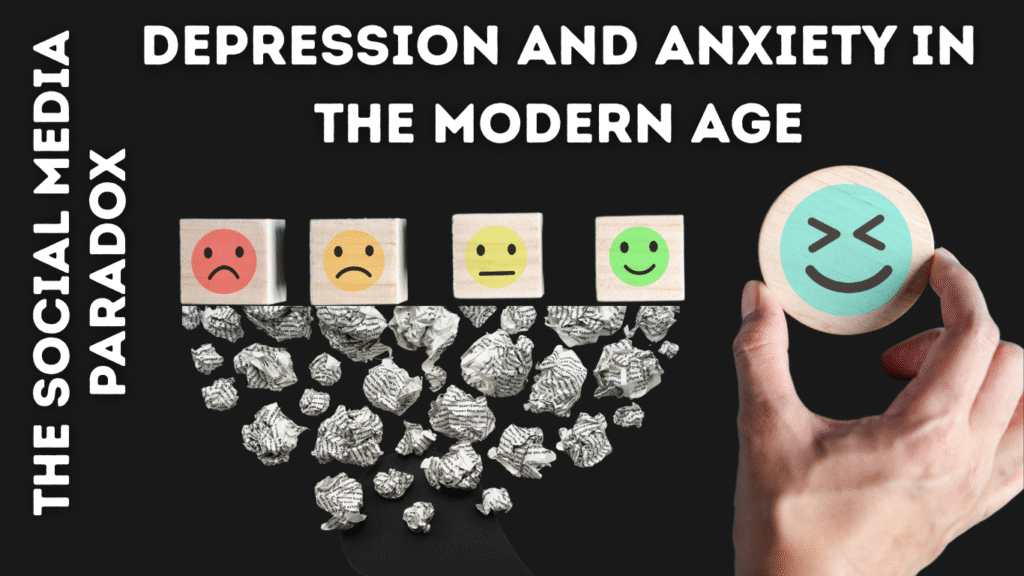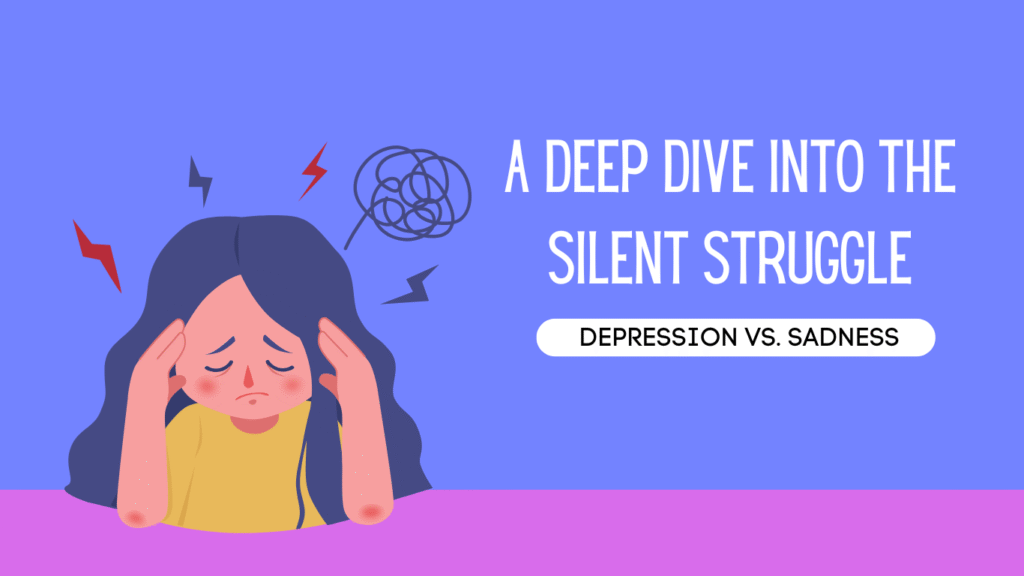Introduction
Ever felt like you’re constantly under pressure, and even when the day ends, your mind won’t shut off? That might not be just a “bad week.” It could be chronic stress — a silent enemy that slowly chips away at your mental well-being. Let’s take a deep dive into how it works and how you can fight back.
What is Chronic Stress?
Chronic stress occurs when you’re exposed to stressors over a long period — weeks, months, or even years. Unlike acute stress, which is temporary and sometimes even helpful, chronic stress sticks around like an unwanted guest, messing with your mind and body in subtle but harmful ways.
Chronic Stress Definition
The chronic stress definition in psychological terms is: a prolonged and constant feeling of stress that can negatively affect your health if not managed properly. This type of stress can result from work pressure, financial issues, toxic relationships, or ongoing life uncertainty.
Signs of Chronic Stress
Spotting the signs of chronic stress early can make a huge difference. Look out for:
Irritability or mood swings
Constant fatigue
Difficulty sleeping
Loss of focus
Changes in appetite
Frequent illnesses
Withdrawing from social interaction
These signs are your body’s way of waving a red flag.
Chronic Stress Symptoms
Beyond behavioral signs, here are some common chronic stress symptoms:
Persistent headaches
Muscle tension
Digestive problems
Heart palpitations
Depression or anxiety
Memory issues
Low self-esteem
If you experience a combination of these for more than a few weeks, stress might be to blame.
What Will 3 Months of Chronic Stress Cause?
Three months may not sound like much, but what will 3 months of chronic stress cause? Quite a lot. Studies show that even short-term chronic stress can:
Shrink parts of the brain (especially areas tied to memory)
Suppress the immune system
Cause hormonal imbalances
Disrupt sleep cycles
Trigger anxiety or depressive episodes
The longer it goes unmanaged, the more damage it can do.
How Chronic Stress Impacts Mental Health
Chronic stress attacks your mental health in stealthy ways. You might start doubting yourself, feeling detached from loved ones, or struggling with tasks you once enjoyed. It increases cortisol levels, which — in excess — alters brain structure and function, particularly in the prefrontal cortex and hippocampus.
Cognitive Impairments Due to Chronic Stress
Brain fog isn’t just a buzzword. Chronic stress genuinely impairs cognitive abilities. This includes:
Poor decision-making
Difficulty concentrating
Slower thinking
Forgetfulness
This can affect work, relationships, and even your sense of identity.
Chronic Stress and Emotional Exhaustion
One of the most exhausting effects of long-term stress is emotional burnout. You may feel numb, detached, or emotionally drained. This state can cause social withdrawal, relationship strain, and a deep sense of emptiness.
The Link Between Chronic Stress and Depression
There’s a strong link between chronic stress and depression. Stress alters brain chemistry and can trigger or worsen depressive symptoms like:
Hopelessness
Loss of interest in life
Sleep disturbances
Feelings of worthlessness
If left unaddressed, stress can create a feedback loop that fuels depression.
Chronic Stress and Anxiety Disorders
Stress and anxiety go hand-in-hand. Chronic stress can lead to or aggravate anxiety disorders such as:
Generalized Anxiety Disorder (GAD)
Panic Disorder
Social Anxiety
PTSD
You might find yourself constantly worrying or having panic attacks, even over small things.
How to Deal with Chronic Stress
Wondering how to deal with chronic stress? Start with these basics:
Identify stressors (keep a journal)
Set realistic boundaries at work or home
Prioritize sleep and hydration
Talk to someone you trust
Practice mindfulness or meditation
Take regular breaks during your day
Even small lifestyle changes can ease the weight you carry.
How to Reduce Chronic Stress Naturally
There are natural ways to reduce chronic stress that don’t require medication:
Exercise: Movement releases endorphins, the body’s natural stress relievers
Nutrition: Eat whole foods rich in magnesium, B-vitamins, and omega-3s
Herbal aids: Ashwagandha, chamomile, and green tea may help
Deep breathing: Slows heart rate and reduces anxiety
Grounding techniques: Focus on your senses to stay present
How to Get Rid of Chronic Stress for Good
Getting rid of chronic stress permanently involves long-term commitment. It means re-evaluating your life — jobs, relationships, habits — and making decisions that put your health first. Professional therapy, lifestyle redesign, and support systems are all part of the journey.
When to Seek Help for Chronic Stress
You don’t have to hit rock bottom to ask for help. If you’re constantly overwhelmed, losing interest in life, or struggling to function, reach out. Therapists, counselors, and even primary care doctors can provide guidance, tools, and referrals.
Conclusion
So, what is chronic stress? It’s more than just a rough patch — it’s a long-term pressure that can impact your entire well-being. Understanding the chronic stress symptoms and learning how to get rid of chronic stress can change your life. It starts with awareness, and it continues with action. You deserve peace of mind, and it begins with taking the first step.
FAQs
1. Can chronic stress lead to physical illness?
Yes. It can cause high blood pressure, heart disease, obesity, and a weakened immune system.
2. How long does it take to recover from chronic stress?
It varies, but with proper care and lifestyle changes, many people feel better in a few weeks to months.
3. Is medication necessary for treating chronic stress?
Not always. Many people manage it naturally through therapy, exercise, and lifestyle changes, but medication may help in severe cases.
4. Can chronic stress cause memory loss?
Yes, long-term stress affects the hippocampus, the brain region tied to memory.
5. What are the best relaxation techniques for chronic stress?
Deep breathing, meditation, journaling, walking in nature, and practicing gratitude.


